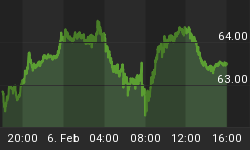It's not often I agree with mainstream economic reports but this is one of those times, at least in terms of current assessment, but not what to do about the situation.
Citibank says Here Comes a Global Recession.
"In our view, global growth is at a highly precarious point, after 2-3 years of relative calm," the team of economists led by Willem Buiter said in their note, which is likely to exacerbate concerns about the world's ability to withstand a pause in China's stunning economic growth.
"The long-standing fragilities in the world economy relate to the structural and cyclical slowdowns in China and its unsustainable exchange rate regime, the excessive level of debt across many countries and sectors and ongoing regional and geopolitical uncertainty," the economists said. The economists have accordingly revised their forecast for growth this year in advanced economies, from a 2.4 percent in January 2015 to 1.6 percent currently, and warned that the 2016 figure "could well be lower."
When they adjust for what they call "true Chinese growth," the Citi team finds that global growth might have been as low as 2 percent year-over-year in the final quarter of 2015. That is the lowest since the euro zone recession of 2012-13, and if growth remains at such depressed levels, it would qualify as a global recession according to their measures.
Keynesian Absurdity
Up to that point I entirely agree with what Citibank's Buiter had to say. However, Keynesian silliness sets in as is typical.
According to Citi, "To avoid a recession and to avoid a greater slowdown in potential output growth than is warranted because of worsening demographics, the world needs a global version of what we would call 'Abenomics plus,'" which in Citi's terms would be easy monetary policy coupled with fiscal stimulus and structural reform that would include "material deleveraging."
Fools Cannot Learn
Why can't fools learn? Because they are fools.
The idea that a country can spend its way to prosperity has been disproved time and time again. The most recent example is Japan where decades of fiscal stimulus building bridges to nowhere did nothing to stimulate the economy.
As a direct result of Keynesian and Monetarist stupidity, Japan has the highest debt-to-GDP ration in the developed world.
I challenge Buiter to answer the question "What the hell happens as soon as stimulus is cut off?"
Buiter can't, at least in terms favorable to ridiculous Keynesian thesis.
As as followup question I ask Buiter "Is Keynesian stimulus any different than heroin addiction where increasing amounts are needed to reach the same high?"

















